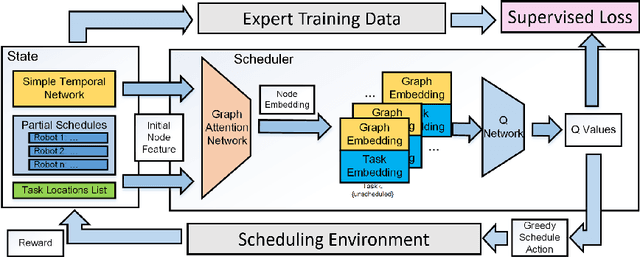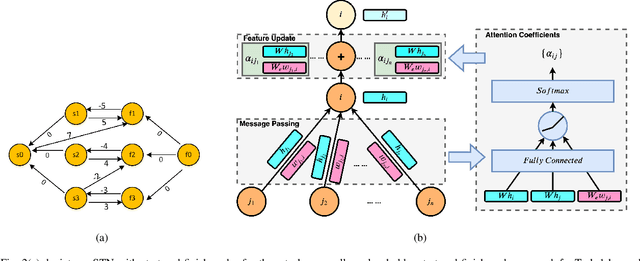Learning to Dynamically Coordinate Multi-Robot Teams in Graph Attention Networks
Paper and Code
Dec 04, 2019



Increasing interest in integrating advanced robotics within manufacturing has spurred a renewed concentration in developing real-time scheduling solutions to coordinate human-robot collaboration in this environment. Traditionally, the problem of scheduling agents to complete tasks with temporal and spatial constraints has been approached either with exact algorithms, which are computationally intractable for large-scale, dynamic coordination, or approximate methods that require domain experts to craft heuristics for each application. We seek to overcome the limitations of these conventional methods by developing a novel graph attention network formulation to automatically learn features of scheduling problems to allow their deployment. To learn effective policies for combinatorial optimization problems via machine learning, we combine imitation learning on smaller problems with deep Q-learning on larger problems, in a non-parametric framework, to allow for fast, near-optimal scheduling of robot teams. We show that our network-based policy finds at least twice as many solutions over prior state-of-the-art methods in all testing scenarios.
 Add to Chrome
Add to Chrome Add to Firefox
Add to Firefox Add to Edge
Add to Edge